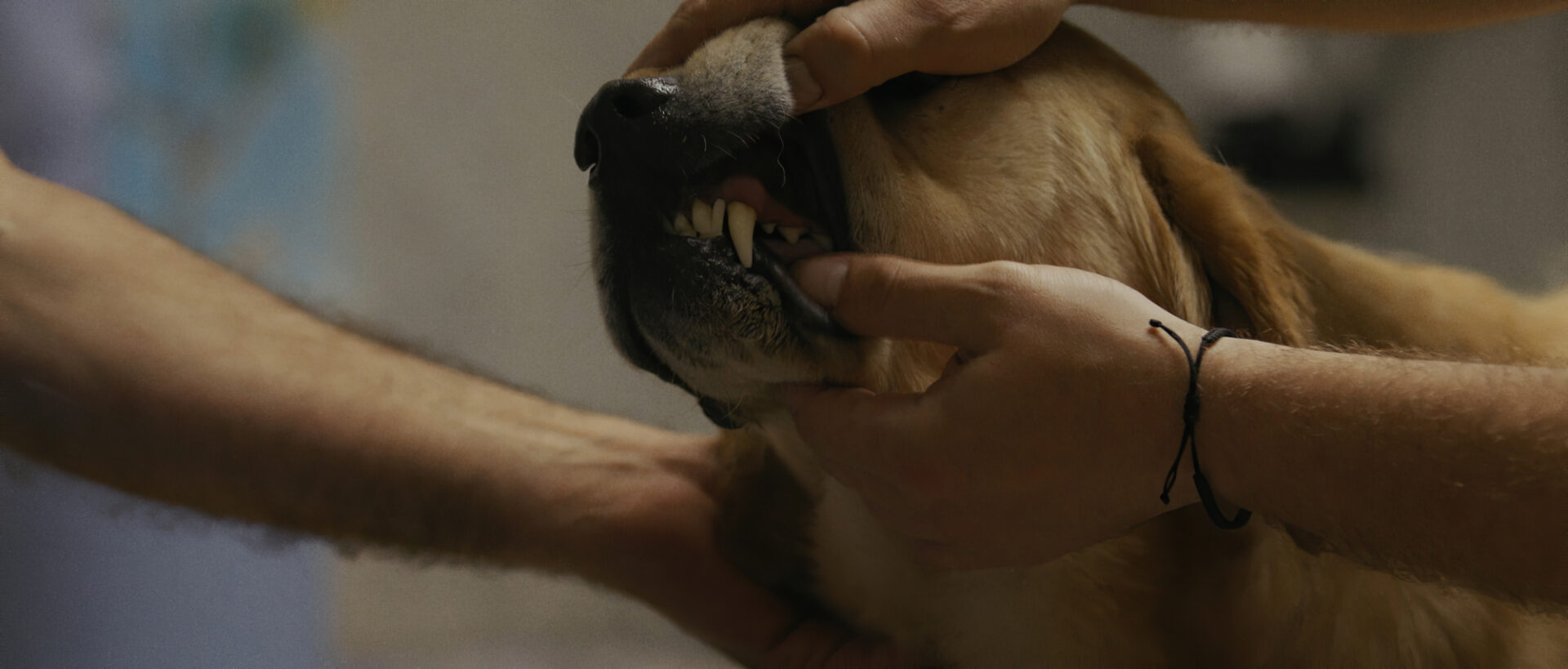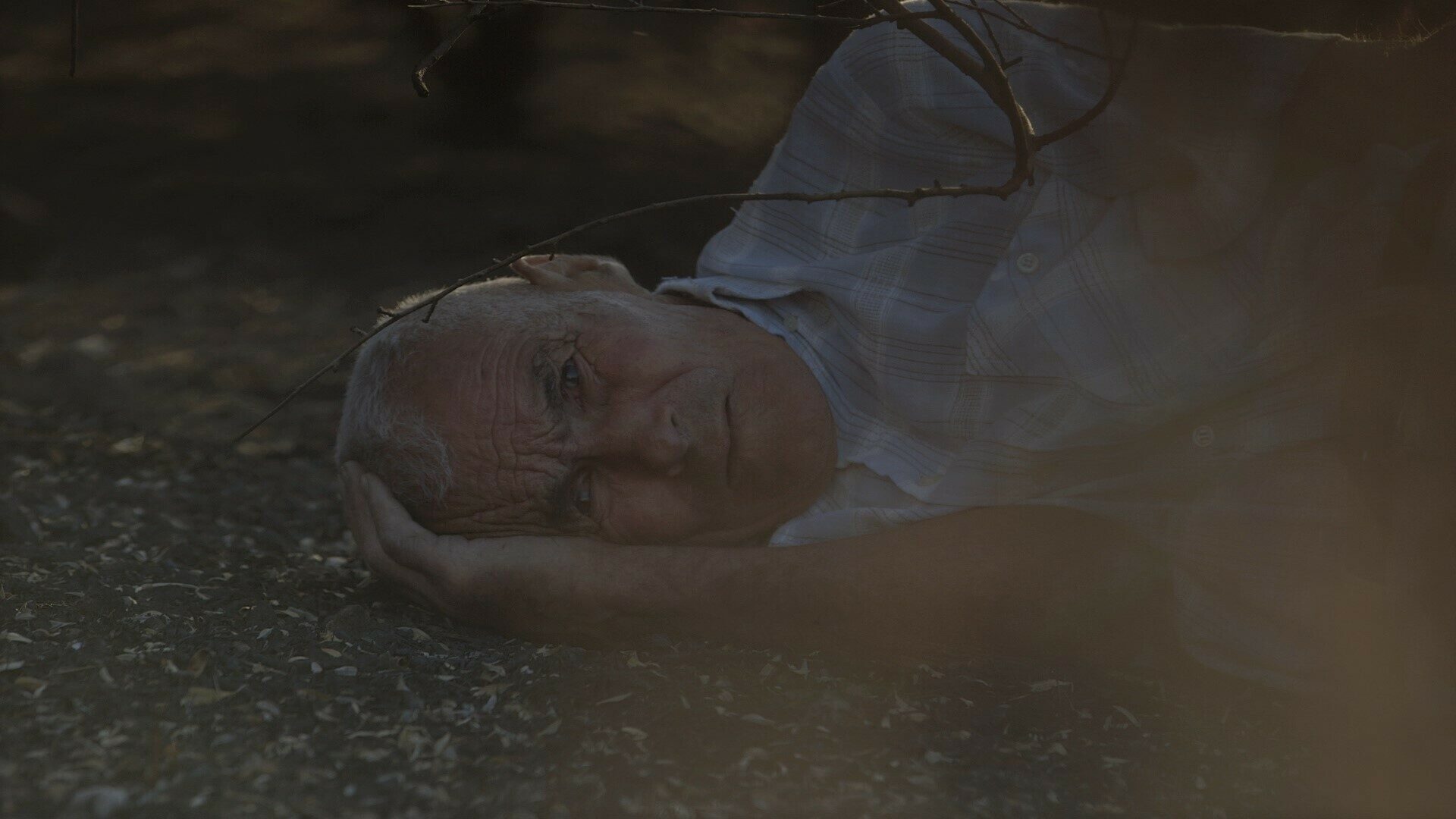Looking Is Not Seeing Is Not Feeling
Many films in this year’s IDFA short film competition are committed to the act of looking—or, sometimes, seeing.

“We are going to drive around. That’s all.” Police officer Matt shrugs. “We have no destination in mind or no special project that we need to do.” He smiles shyly towards the cameraman in the passenger seat of his vehicle, his eyes hidden behind tinted glasses. The mission’s description is expressed matter-of-factly and honestly, it feels banal: driving around seems like a fairly easy thing to do. Yet moments earlier—the first words uttered on screen—Matt admitted to harboring the fear of losing his life: “I wonder if today’s the day I’m going to be killed.” What kind of danger could possibly lurk around the corner for him to feel this way? Or, better, what does it say about this man’s psyche?
While monotonous American suburbia slides by in the background, French documentarian Yohan Guignard carefully films the middle-aged, balding white man behind the wheel, the muscles in his face twitching. During the first call they get, Matt conscientiously informs the director which button to press in case something bad happens to him. Although there’s a strong possibility he could be overplaying the whole situation—or leaning a bit too much into a self-aggrandising narrative—we cannot really tell what’s at stake here. Thankfully, we don’t get to find out. Nothing bad happens, and no buttons get pressed. At least not as far as we can tell, as Guignard cuts away to a conversation Matt has with a colleague about beer pong. No heroics here. So off Matt goes, looking for trouble—looking for a new situation that can give meaning to his patrolling.
Random Patrol by Guignard is one of many films in this year’s short film competition at IDFA, the world’s biggest non-fiction convergence, that’s committed to the act of looking—or, sometimes, seeing. Matt drives around, the director records. We do not get what we would anticipate from a documentary about a police officer post-BLM – we don’t get subjected to images of explicit (physical) police aggression—but instead, we see a man, an institution, sad, desperate, and confused. And while Guignard paints a bleak picture, he doesn’t judge: Matt is divorced, in mourning, and uncomfortable in his fragile masculinity. Taught to distrust each and every civilian, he expects evil. Paranoia, just like the badge he proudly displays, has become part of the man’s uniform. Guignard notes the art of seeing your fellow man has long been forgotten by those who have sworn to protect and serve, by these powerless men not feeling seen. These observations alone make ‘Random Patrol’ a remarkable and exemplary short, though unfortunately, the director doesn’t avoid the trap of adding a verdict, as he ends the film with the overtly conspicuous metaphor of the Canadian River near Oklahoma City bursting its banks, filmed through the windshield of Matt’s SUV. It feels unnecessary, or perhaps it just doesn’t feel true to the film’s aesthetic and spirit.
It’s a false note, yet a forgivable one considering the documentary’s overall qualities. There are other shorts that experience more difficulties when trying to make the audience see their subjects. Take, for example, Dejan Petrović’s Adjusting, a somewhat straightforward observational portrait of a dog shelter in Serbia. Man is portrayed here as a towering, dominating presence, mainly occupied with logistics, as well as punishment. Human faces are purposefully kept out of frame. Instead, we focus on the eyes—and perhaps the inner turmoil—of our canine protagonists during their training period. Petrović brings us down to the level of these outcast dogs by lowering the camera to their height, but what inspired this choice? To immerse the audience? It definitely results in a few tense moments of violence, like when a scared little doggo named Vanja gets introduced in a kennel full of barking tail-waggers and tries to escape with her caretaker. In the end, however, it’s a pity that a film so concerned with Big Themes as freedom and enclosement feels so hermetic, so limited in its possible readings. The ending statement, which recontextualizes the earlier scenes, narrows possible interpretations even further, imbuing the film with a didactic rigidity. Somehow, the dogs have ended up as arguments to back up Petrović’s thesis—and it doesn’t make for a better film.

Adjusting (Dejan Petrović, 2021)
Similarly, the Canadian documentary Nuisance Bear by Jack Weisman and Gabriela Osio Vanden relies on text to convey its message or, worse, to justify its filmmaking. In the film, which world premiered in Toronto, we follow a migrating polar bear that wanders through Churchill, Manitoba, an icy town in Northern Canada. Watching the beautiful animal stroll around ‘human territory’ sure is impressive—and of course, the well-composed images smoothly invoke important topics such as ecological catastrophe and global warming—yet layered, perceptive cinema this is not. It’s a mere registration, but is it one that makes us see anything? With regard to the complete absence of interesting ruptures, juxtapositions, or complexities, one could argue that careful tracking shots are nice to look at but serve no real purpose besides that. When the bear gets scared off by special patrols and the film inevitably comes to an end, you can’t help but feel like one of the tourists in the opening sequence, desperately trying to get a photo of – and a quick look at—the majestic mammal.
One of the highlights of short film programmer Jasper Hokken’s competition is the Spanish world premiere Bancal, by Rafael Montezuma. In his contemplative portrait of Santiago, an old man devoted to the age-old tradition of stacking stones, the director parallels the work ethic of his subject by relying on patience, acquiescence, and intuition. The film opens phenomenally with a shot of a big rock, somewhere in the grassy highlands of Spain. Montezuma lets the textures soak in both the blueish greys of the sky and the golds and greens of the rock’s mossy flank. There’s a Lynchian quality to the image, though you could just as well reference Apichatpong Weerasethakul, whose meditative ways of exploring man’s relation to nature and the commingling of past and present, reality and dream seem like a big influence here. Like Lynch and Weerasethakul, Montezuma appears completely disinterested in crafting a film for it to be studied or unpacked later. From the get-go Bancal positions itself as a work of art that’s content in just gliding by—in simply being here. Here’s a rock: can you feel it? Basically, it’s all about the vibes, as per the lingo of a certain group of cool kids on Film Twitter.
We see Santiago at work: searching for the stones, chiseling them, and, finally, arranging them. Sometimes he falls asleep, or he places his ear on rocks to listen to the earth. What Montezuma understands perfectly is that there’s no point in asking about ‘the why’ of the old man’s endeavours, as the answer could very well mirror Denis Lavant’s laconic line in Leos Carax’ Holy Motors: “Pour la beauté du geste.” [“For the beauty of the gesture”] Instead, the director delivers us a sensorial experience, a work that’s made with the same delicate care as his subject when he’s working on his stone walls. Perhaps it’s not wholly original in its final execution—and it’s definitely not free from visual clichés—but the craftsmanship on display here, when it comes to pace and serenity, is enough to disregard these matters. Some viewers might find Bancal a total slog—and it’s understandable why people initially might be turned off by the film’s languorous approach. After all, an ardent support of slow cinema on the festival circuit has resulted in a fair amount of boring stinkers. To me, however, it’s clear Montezuma is a filmmaker who has seen more than one Tarkovski flick. He knows what he’s doing. You can feel it, in the way his aesthetics coalesce with Santiago’s wrinkled face, his hands and his rocks, his grasslands and his skies. In tune with the cosmos, Bancal remains untamed by narrative impulses.

Bancal (Rafael Montezuma, 2021)
Another strong film concerned with seeing and feeling and—gasp!—the universe is Wolf Whispers by French filmmaker Chloé Belloc, a non-fiction work made at Le Fresnoy. Yet while Bancal invites the inclined audience to view the world through the director’s subjective filtering of its protagonist’s mind state, Belloc’s film initially explores the limitations of interhuman understanding. We open with family photos, distorted by the quivering lens of a magnifying glass. Belloc is talking to someone about her autistic brother; she asks for compassion. “We helped him a lot as a family, and he found it normal. He didn’t realise that it was hard for me.” The person on the other side of the line comforts the director, explaining people with Asperger’s have empathy in their soul, yet not in their conscious. When, one scene later, we see the two siblings seated outside, it is clear Belloc desperately wants to grasp the inner world of her brother Baptiste. Asking questions about the many indecipherable lists he makes—which a strong gust tries to take away—it builds to an uncomfortable quarrel. Baptiste admits to feeling shame. While the blowing wind strengthens the feeling of restlessness, Belloc tosses glances of incomprehension at him—her frantic search mirroring her brother’s frustration with people not looking further into his personality, writing him off after the first impression.
Wolf Whispers is a strange beast. It moves like no other film, completely defying more fashionable modes of documentary filmmaking by constantly skittering towards new sounds, new textures, and new questions. After a brief stop in a wildlife park, in which the siblings observe a pack of wolves and discuss power relations, and a visit to Baptiste’s working place, Chloé and her brother turn to nature. This is not necessarily where they find each other, but it’s where Belloc, by studying her brother—his mumblings, his movement—tries to synchronise her filmmaking with his interiority and the way it informs his vision of the world. Meanwhile, the disembodied voice on the telephone from the opening scene (Is it a medium? Their mother?) reads a text written by Baptiste, in which he proudly declares he has “a soul more open than many of you”. His sister shows us he must be right. When Baptiste is not studying the bark of trees and the abstract patterns of nature, he is seen enjoying the echoes of the stones he clanks together.
Belloc’s consequent endeavour in absorbing the many textures of their environment is phenomenal and results in a finale of cosmic proportions. Without taking the viewer by the hand and pointing things out, Wolf Whispers shows us the limitations of looking—and the immense pleasure of seeing and feeling. In doing so, the director has developed a fascinating film language, completely her own, showcasing her “incredible openness of heart”. Hours, days, years, centuries after the film has ended, Baptiste whispers will resound within: “Regarde comme c’est beau.” [“Look how beautiful it is.”] It’s a graceful outlook many filmmakers could learn from.

